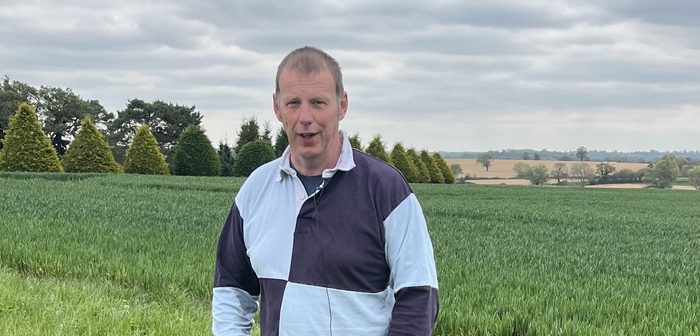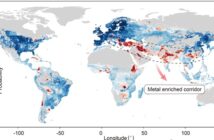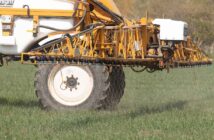Severn Trent has launched a new package of funding and support for farmers as part of its recently announced Get River Positive commitment. The Regenerative Pathway package will support farmers to protect the environment and water quality, while improving per hectare profitability by up to 20% and is a key part of the company’s pledge to help others to improve and care for rivers.
Enhanced STEPS
Dr Jodie Rettino, Severn Trent catchment management and biodiversity business lead, outlines that the Regenerative Pathway builds on the company’s successful Farming for Water programme, that is largely based on the principles of regenerative farming.
Therefore the new package will include increased match-funding, of up to £30,000, for building pesticide washdown areas, as part of the company’s flagship Severn Trent Environmental Protection Scheme (STEPS).
“Match funding for other STEPS options has also doubled to £10,000, and in addition, we’re providing up to 75% funding for livestock fencing in our cryptosporidium catchments,” she says.
“We’re also putting increased focus on supporting farmers with water resilience, in light of extreme weather events, so we can now offer rainwater harvesting equipment as a priority item. In line with ELM scheme requirements for overwintered cover, we’ll be supporting cover crop applicants in groundwater catchments with a soil testing provision.”
Hassle-free tree planting
On top of the improved STEPS funding, Severn Trent has introduced a new Trees for Water offer, to include riparian buffer planting along watercourses, to protect against nutrient leaching. This scheme can also fund agroforestry, in order to help to prevent spray drift.
Both of these options mean we do not take valuable land out of production, and instead help to enhance biodiversity, and create habitats for farmland birds.
Dr Rettino explains that the scheme offers an annual premium payment of £200/ha for the first 10 years, for sites over 8ha in size and will cover all aspects of planning, planting, management, and 35 years of maintenance.
“Landowners will be set up with a Biodiversity Net Gain assessment, to help attain biodiversity credits, which could be worth over £24,000/ha, for 30 years (subject to purchaser’s requirements),” she says.
“After the initial 35 year period, landowners will have the ability to keep or sell the residual carbon credits, making the offering an ideal hassle and cost-free investment for those looking to leave a legacy to their successors.”
Transitioning to regenerative practices
“We already support the principles of regenerative agriculture through our existing environmental work in partnership with farmers, but we feel it important to take this one step further and help support those looking to make the transition to regenerative practices,” she says.
“We have an outstanding track record of working with partners to deliver results, and our ambitions require teamwork. Therefore, we’re directing arable farmers to our partner, Agreena, which will track and quantify the greenhouse gas benefits of transitioning to more sustainable regenerative farming practices and also issue carbon certificates to the farmer. Farmers can then choose to keep or sell their certificates annually.”
Sustainable project funding
The final element of the Regenerative Pathway is an ambition to work with NatWest. Dr Rettino explains that as part of future ambitions Severn Trent will be looking at how to support green financing. For instance, NatWest have a long-standing presence in the agricultural sector, and offer ‘Green Loans’ to support the drive to more sustainable and regenerative farming practices. Other financial organisations may offer similar packages.
Farm manager at Squab Hall Farm, Warwickshire, Martin Downes, explains that he has been working with Severn Trent for several years, using STEPS funding to streamline operations and protect the environment.
“I’m already using regenerative methods to establish oilseed rape crops, but with the right funding in place, I’d definitely consider turning more of our conventional practices to regenerative alternatives.
“Given my stress-free and straightforward experiences of applying for STEPS grants, and my great relationship with my agricultural adviser, I’m looking forward to understand how the package can continue to support the business,” he says.
Apply today
Applications for all the schemes within the Regenerative Pathway are now open for applications. Please contact your local Severn Trent agricultural adviser or visit www.stwater.co.uk/steps for more information on STEPS or https://stwater.co.uk/agricultural-advisors.
What can the Regenerative Pathway deliver?
- The potential to reduce agricultural carbon emissions by at least 20%
- Reduce nitrate losses by up to 23% and phosphate losses by up to 25%
- Create and enhance over 62,236ha of land
- Reduce nitrogen inputs by at least 15%, saving on average £16/ha
- Gives farmers an average profitability boost of 20%/ha




